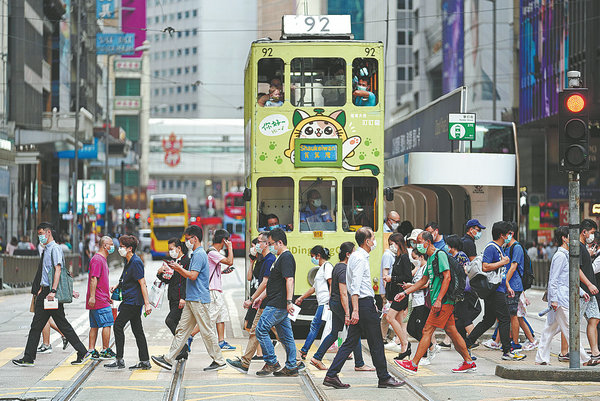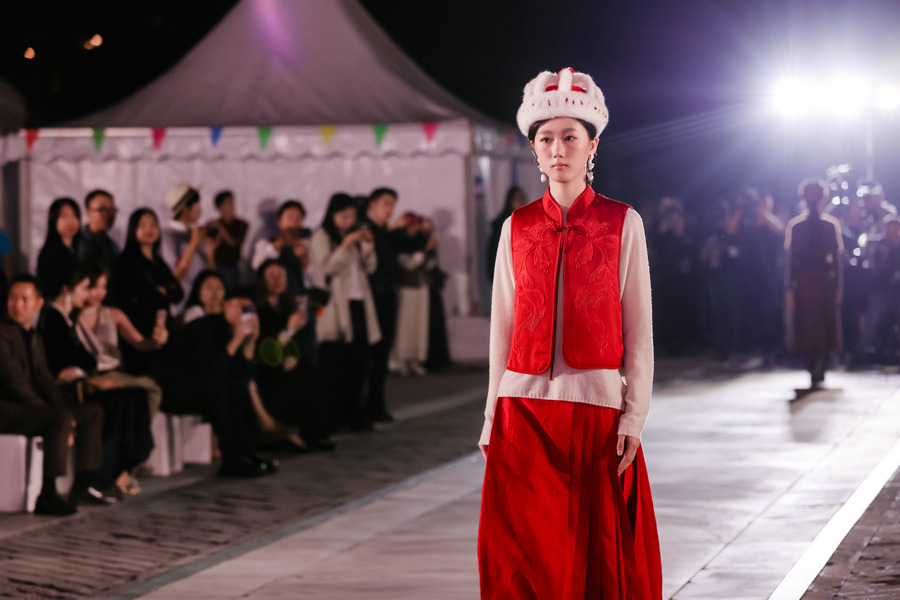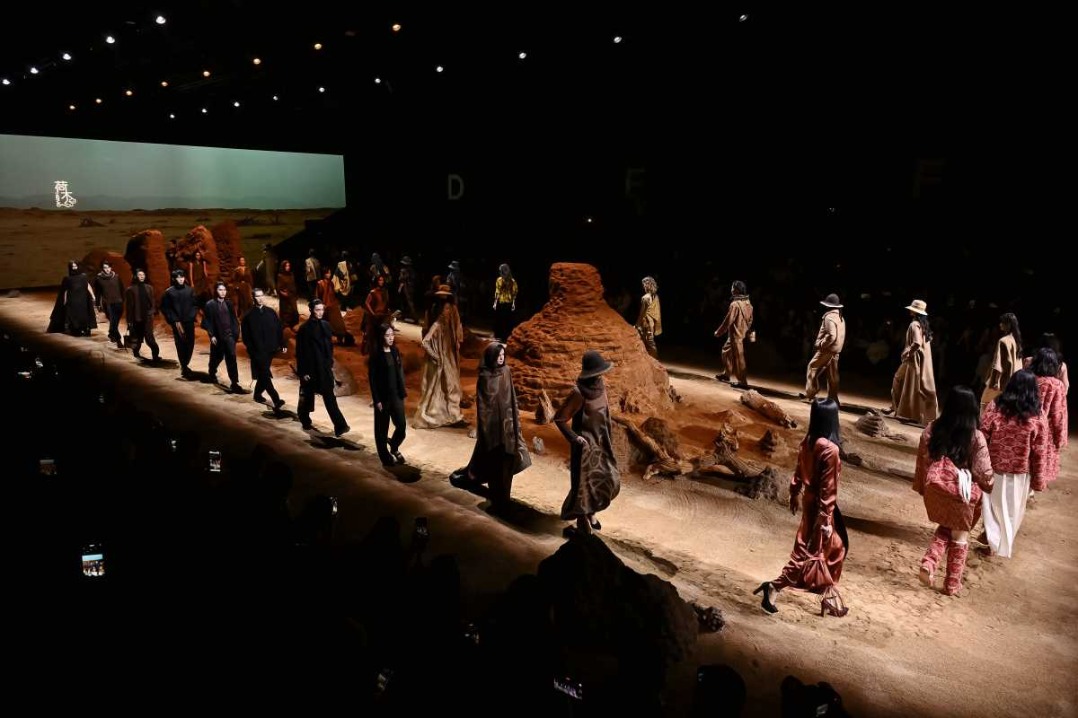A city of opportunity


A visitor to Hong Kong may be amazed by the variety of food the city has to offer. In addition to traditional Chinese delicacies, one can find Japanese sushi, Thai curry and Spanish paella within a short walk.
An international business and financial center, boasting openness and diversity, Hong Kong is home to some 600,000 non-Chinese residents, many of whom have lived here for decades.
Since its return to China in 1997, Hong Kong has become more inclusive, with a growing number of foreign nationals and a more favorable environment for them to thrive.

A resident for more than 20 years, Abdus Samee from Pakistan sees the city as his second home. The 22-year-old speaks fluent Cantonese and shares a lifestyle with many locals: spending long hours in the workplace during weekdays and going hiking or cycling with friends on weekends.
However, the process of social integration wasn't easy for Samee, who once struggled to communicate with his classmates in school because, like most expats, he faced the language barrier.
Luckily, with the help of a nonprofit that specializes in helping ethnic minorities adapt to the society, Samee quickly picked up Cantonese and English, as well as some Mandarin.
"I was grateful for what they did for me, and was determined to do something similar for kids who face communication issues," he says.
Thanks to his language skills, Samee landed a job at the multicultural ethnic-link teen center, which organizes various educational and social events to help people from different cultural backgrounds feel included.
"Lending a helping hand always makes me happy," he says.
Samee came here at the age of 1 with his father, who made a living in the logistics industry of Hong Kong before becoming a security guard.
"Before Hong Kong's return to China, foreigners, such as Pakistanis and Indians, came here to work in the disciplinary forces or in the logistics industry. Today, their jobs vary and may span different sectors," he says.
Regardless of their occupation and cultural background, people in Hong Kong share the same qualities when it comes to work and daily life, Samee adds.
According to the latest census data, the number of non-Chinese people in Hong Kong accounted for 8.4 percent of the total population last year. The Hong Kong Special Administrative Region government has been stepping up efforts to boost social integration, partnering with nonprofit institutions to offer ethnic minorities support in education and employment.
For Marites Mata, a job opportunity brought her to this city 25 years ago.
After graduating from college, she followed a path that many Filipinos choose: to work in Hong Kong as a domestic help. The reason was realistic and compelling. Here, she could earn more and support her family back home.
The sole breadwinner of her family, Mata managed to purchase a house in the Philippines with her savings and also paid for her son's education.
Mata is grateful to her employer, who respects her and treats her like a family member.
The modern city infrastructure and its scenic surroundings are a big draw for her. She has visited the Ocean Park, has gone hiking with friends, and enjoys singing and dancing in the parks on Sundays.
In Hong Kong, there are more than 300,000 expat domestic helps, most of whom are Filipinos and Indonesians.
To protect the rights and interests of these foreign domestic workers, the local government has improved labor legislation, adjusted the minimum wage standard and made sure that they enjoy free accommodation, food and medical care from their employers.

Dressed in a light gray suit, paired with rimless glasses, Amakiri Jefferson from Nigeria sits in an office in Tsim Sha Tsui, negotiating orders with African customers. "Africans love Chinese goods, which are cheap and nice," he says.
Jefferson started a logistics firm 19 years ago to ship garments from China to Africa. As trade ties improved over the years, his logistics business expanded to the export of a variety of goods, including shoes and mobile phones.
Asked about the "most attractive thing" in Hong Kong, Jefferson does not hesitate to say "safety".
Since the implementation of the national security law in Hong Kong, social stability has been restored. For Jefferson and many of his business partners, this means a safer and more predictable business environment.
In his spare time, Jefferson likes to go to Lan Kwai Fong for a drink with his friends or to play soccer. He hopes that after the pandemic, he will be able to organize a soccer match with the local community.




































